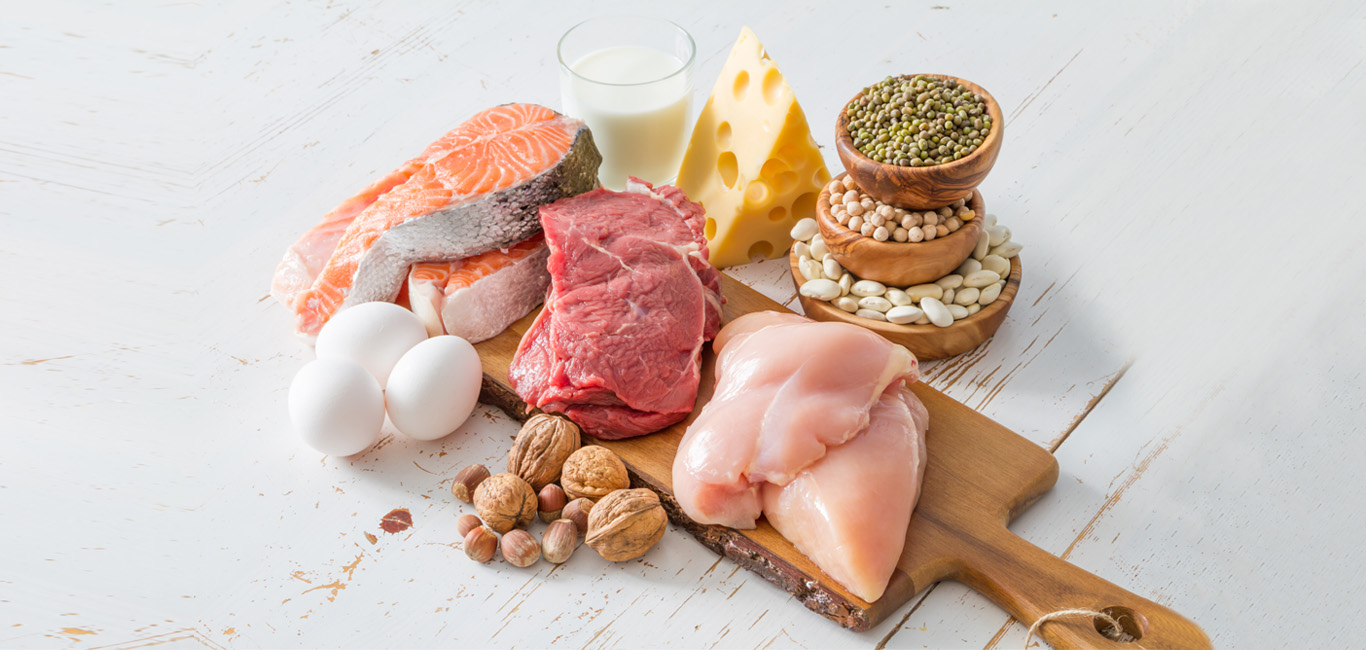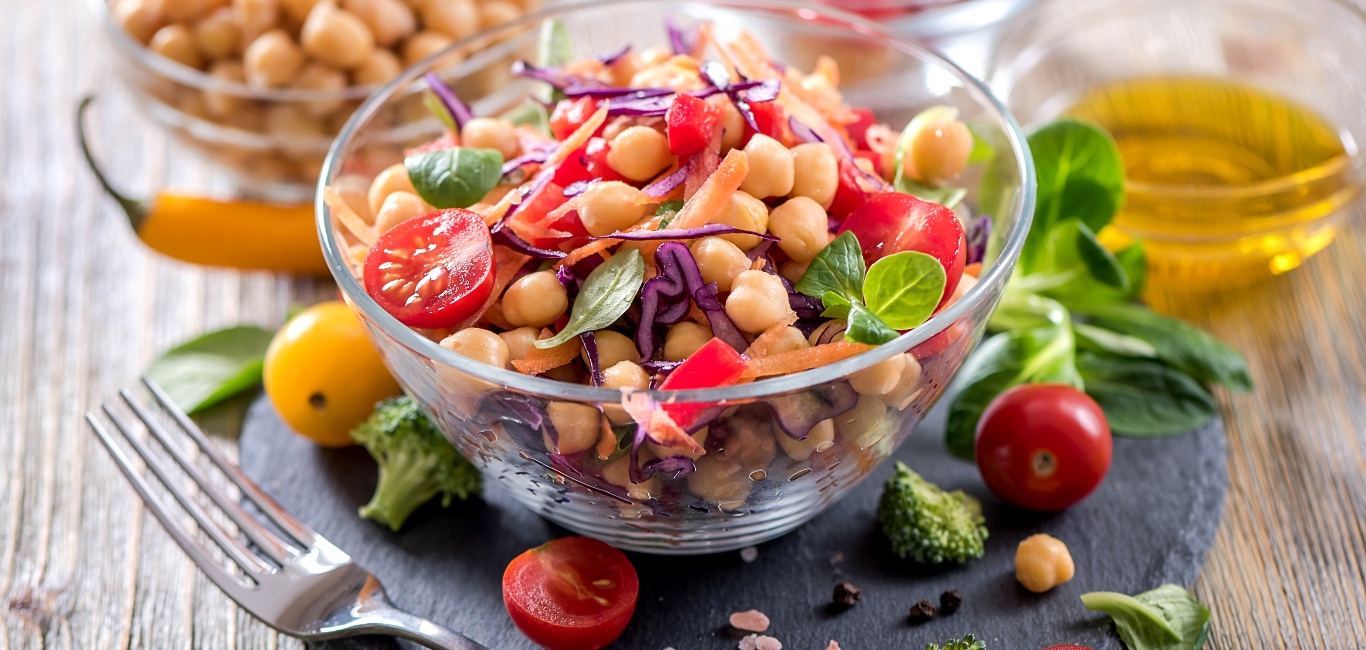
Bengaluru-based fitness enthusiast Anju Wadhera banked on supplements to meet her target of 100gm of protein per day.
“I thought that along with the gym, I needed that much of protein to meet my body and fitness goals. But my body was not ready for it. I had digestion issues and after a year my kidneys became sluggish,” says the 32-year-old who started taking supplements in January 2021 and developed health issues in nine months.
Since then, she has been consuming the daily recommended amount of plant protein — and no more.
Building muscle mass and losing weight has long been a health agenda for many, a goal that has led to people gravitating towards high-protein diets (HPDs). But is the goal accomplished by only consuming high protein? Happiest Health digs deep into the pros and cons of the high-protein fad.
Weight loss via HPD
The key question that often surfaces is does an HPD really work in achieving weight loss and keeping the body in shape? A 2020 research paper, ‘Clinical Evidence, and Mechanisms of High-Protein Diet-Induced Weight Loss’, concluded that clinical trials with various designs have found that an HPD induces weight loss and lowers cardiovascular disease risk factors — such as blood triglycerides and blood pressure — while preserving fat-free mass. Such weight loss effects of protein were observed in both energy-restricted and standard-energy diets and in long-term clinical trials with follow-up durations of six to 12 months.
Contrary to some concerns, the study highlights that there is no evidence that an HPD is harmful to the dieter’s bones or kidneys. However, longer clinical trials that span more than one year are required to examine the effects and safety of HPDs in greater depth.
In this regard, Karthigai Selvi, chief dietician, BGS Gleneagles Global Hospital, Bengaluru, suggests that an HPD for a short duration is not harmful to most healthy people who lead active physical lives.
Is too much protein bad?
In a 2013 review article, ‘Adverse Effects Associated with Protein Intake above the Recommended Dietary Allowance for Adults’, Dr Ioannis Delimaris said that even though a short-term protein-rich diet could be necessary for several pathological conditions like malnutrition, “too much of a good thing” in diet could be useless or even harmful for healthy individuals.
A 2014 study, ‘A high-protein diet for reducing body fat: mechanisms and possible caveats’, pointed out certain limitations that come with HPDs including increased acid load to the kidneys or the high-fat content of animal proteins.
Dr Priyanka Rohatgi, chief clinical dietician, head, department of nutrition and dietetics, Apollo Hospitals, Bengaluru, agrees that the intake of HPDs comes with a higher risk of kidney stones. “Also, since this particular diet contains red meat and saturated fat in abundance, it can lead to an increased risk of heart disease and colon cancer, while another HPD rich in plant-based proteins may not carry similar risks,” she says.
One way of getting the best out of one’s HPD would be to balance it with physical activity and exercise. A 2021 study, ‘Effects of Combined High-Protein Diet and Exercise Intervention on Cardiometabolic Health in Middle-Aged Obese Adults: A Randomized Controlled Trial’, says that combining a protein-heavy diet with exercise can significantly decrease fat mass and improve lipid profiles, insulin sensitivity, glucose tolerance and inflammation in middle-aged and obese adults.
HPD and expert guidance
Clinical nutritionist Pariksha Rao, who is an independent nutrition and wellness consultant, throws light on the most common complaints: flatulence and abdominal distention, since proteins are difficult to digest, especially in vast quantities. “Consuming large quantities suddenly when your body is not prepared to digest that protein load may lead to an imbalance in bodily functions with adverse consequences on bone, kidney and liver health,” she says.
“Excess protein can lead to a decrease in bone mass and, when coupled with less fluid intake, can generate kidney stones. Similarly, a diet rich in meat protein can also increase the risk of developing cancer or heart diseases.”
An HPD with low carbohydrates leads to deficiency of nutrients, decreased fibre and constipation. Some protein-rich foods such as full-fat dairy products will increase the risk of heart disease. They may also cause kidney diseases and may affect the health of those who have trouble with protein metabolism,” warns Selvi.
Choose your protein wisely
Rao says cooking or sprouting vegetable protein sources leads to better digestibility. “Having a small portion of fruits like papaya and pineapple along with a high-protein meal can also aid in the easier digestion of protein,” she says. “The naturally occurring enzymes in these fruits have been used since ancient times for quicker breakdown of proteins and the most common application has been in tenderising and curing meats.”
If the aim is to correct one’s body composition, Dr Rohatgi says a HPD combined with resistance training would be a good strategy. “Assess your body type before jumping into such diets and regimes,” she says.
Be picky when planning a meal
This is where experts stress that one needs to plan better. “It is essential to keep in mind that weight loss with HPDs is temporary,” says Selvi. “For long-term good health, one must follow a balanced diet with regular physical activity. And it is always advisable to speak with a doctor and a dietitian before enrolling into bodybuilding and weight-reduction programmes.”
How much is too much?
The World Health Organization has set the safe level of protein intake at 0.83 grams per kilogram of body weight daily. “For the average person (who is not an elite athlete or heavily involved in bodybuilding) it is probably best to aim for no more than 2 grams per kilogram, which would be about 150gm/day for a person weighing 70kg,” says Dr Rohatgi.

















